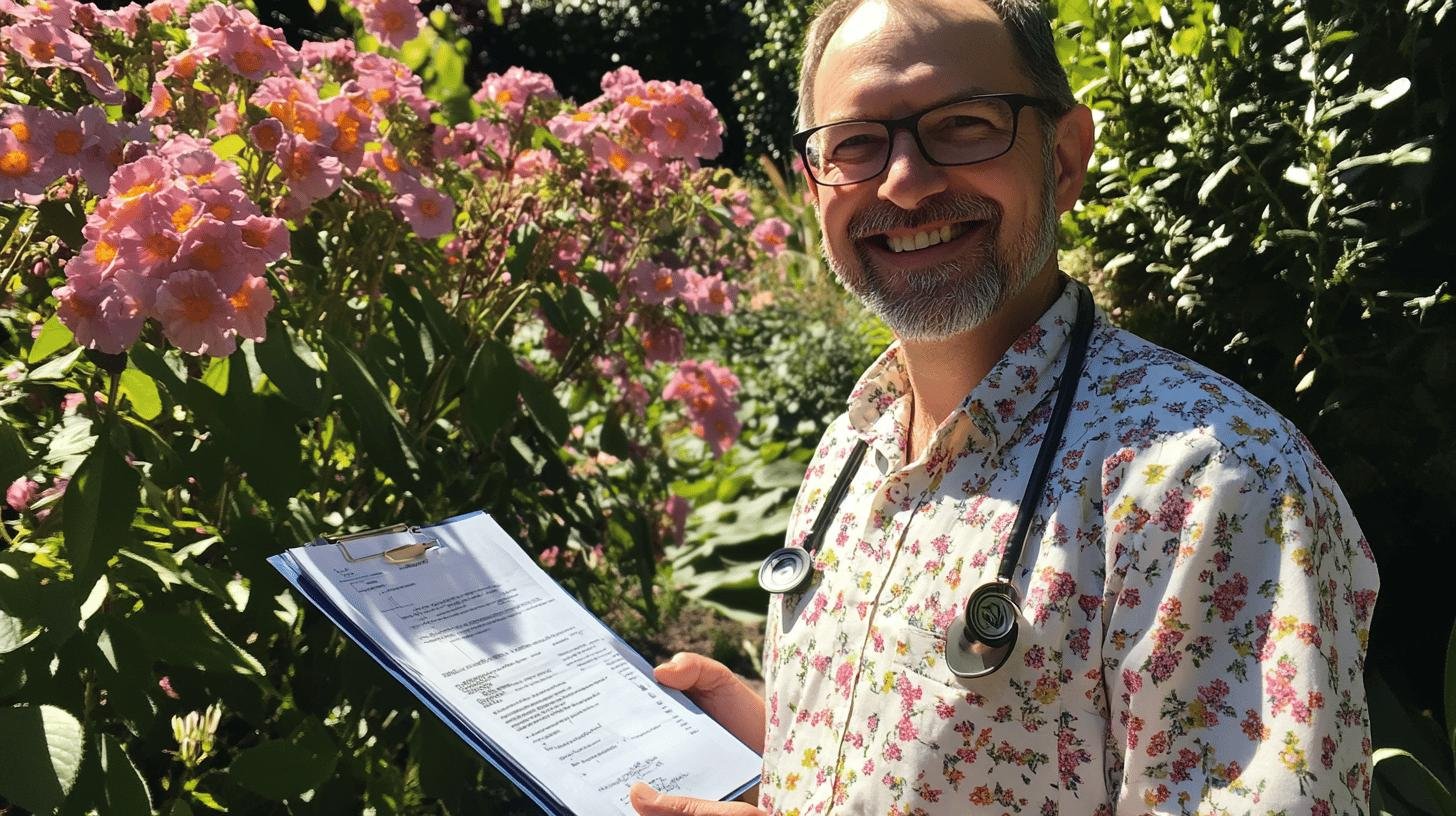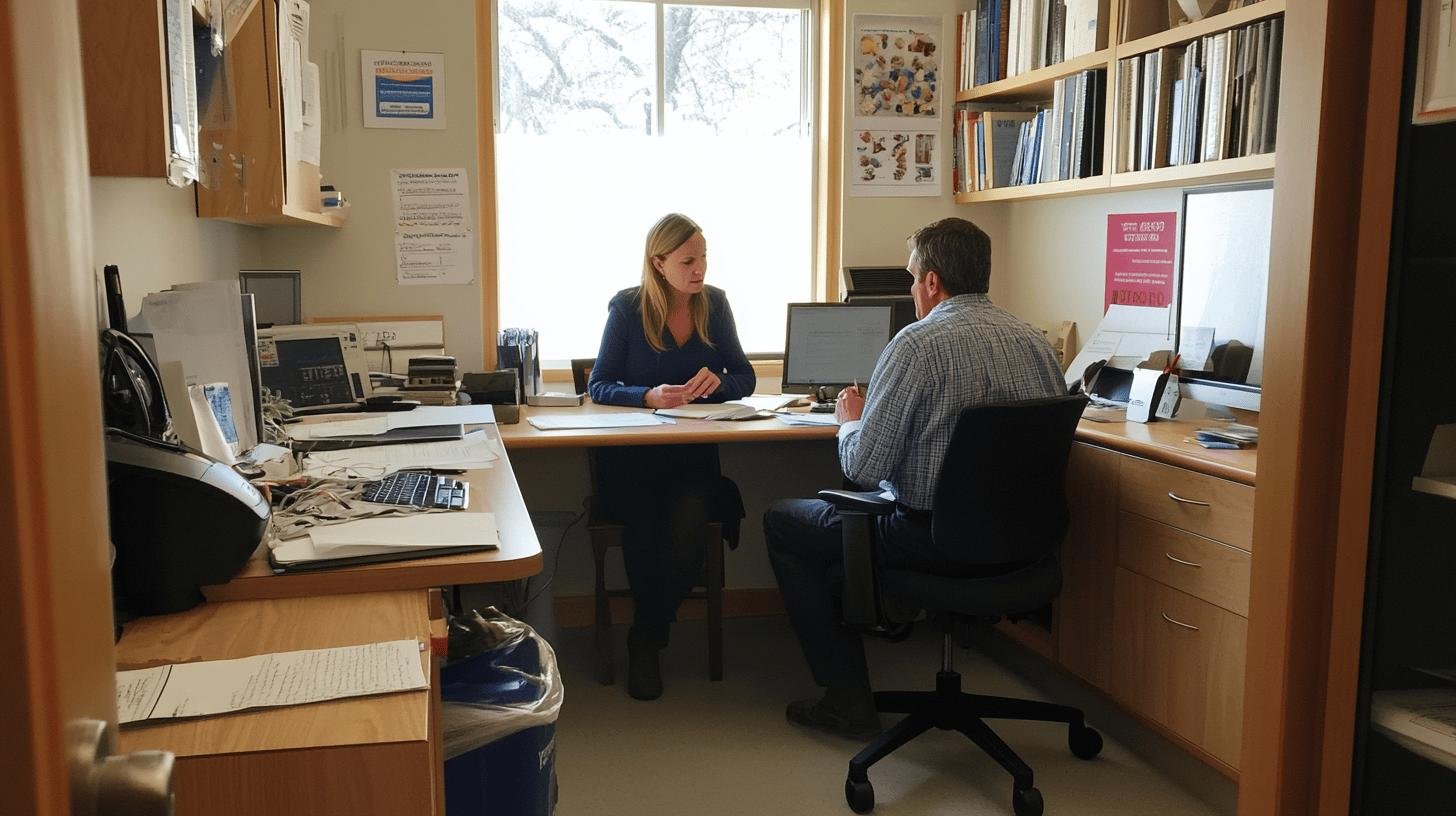TL;DR:
- Complete reversal of autoimmune diseases is unlikely, but symptoms can often be managed and disease progression slowed.
- Successful cases of symptom relief involve lifestyle changes and targeted therapies.
- Effective dietary strategies include:
- Remove processed foods
- Reduce sugar, gluten, and dairy
- Eat organic meats, bone broth, and nutrient-rich fruits/vegetables.
- Direct primary care (DPC) offers personalized, affordable healthcare with a holistic approach.
- Innovative therapies, like biologics and stem cell treatments, show promise for adjusting immune responses and repairing tissue.
- Continued research is crucial for developing personalized treatments and improving diagnosis.
Can autoimmune diseases be reversed? It’s a question that ignites hope in many facing the daily challenges of these conditions. There’s no definitive cure right now, but whispers of “reversal” are getting louder in medical circles. Patients report symptom-free lives and normal blood tests, thanks to lifestyle tweaks and groundbreaking therapies. So, what does this mean for those battling lupus, multiple sclerosis, or rheumatoid arthritis? Let’s embark on this exploration of possibility. We’ll dive into research, real-life success stories, and lifestyle strategies that aim to support those seeking answers. Ready to uncover what’s possible?
Can Autoimmune Diseases Be Reversed? Exploring Hope
Can autoimmune diseases be reversed? Current research tells us that a complete reversal may be a stretch. However, there’s a lot of hope. Many people can manage symptoms and slow the disease’s progression. So, while we might not have a full reversal, the right steps can make life much more manageable for those affected.
Let’s dive into some successful cases. There are documented instances where patients experience complete symptom relief. Their ANA blood tests return to normal, and they feel much better. It’s like hitting a health jackpot! These often result from lifestyle changes, targeted therapies, and new treatments.
The scientific community remains cautious but hopeful about reversing these diseases. While more research is needed, significant symptom management is possible. Tailoring the approach to the individual is key – what works for one person might not work for another. It’s a puzzle, but one that’s worth piecing together.

Current research indicates a complete reversal of autoimmune diseases is unlikely, but there’s a silver lining. Symptoms can often be managed, and disease progression can be slowed, offering a significant improvement in quality of life. Common methods include lifestyle changes and therapies to keep the immune system in check.
Scientists are exploring various methods, from lifestyle adjustments to modern therapies. This includes tailored diets, stress-reducing routines, and meditation. Some prefer dietary changes, like the autoimmune protocol diet, which cuts inflammatory foods. Others opt for treatments like biologics, designed to adjust the immune system’s response. While there isn’t a magic solution yet, progress is being made.
Successful Reversal Cases
Let’s discuss some success stories. There are instances where patients experience complete symptom relief. They start feeling like themselves again, and their ANA blood tests return to normal. It’s like winning the health lottery! These success stories often involve a combination of lifestyle adjustments and targeted therapies. Some find relief by eliminating certain foods, while others benefit from therapies that target specific immune system pathways.
The scientific community is cautiously optimistic. They acknowledge the need for more research but recognize significant symptom management is achievable. Finding the right fit for each person is crucial. What works for one may not work for another, making it a mix-and-match puzzle. However, it’s a puzzle worth solving!
Lifestyle and Dietary Changes for Autoimmune Disease Management
Managing autoimmune diseases through lifestyle changes is a game-changer. The right mix of diet, exercise, and stress-reducing activities can greatly manage symptoms. Think of it as giving your immune system a gentle hug instead of a jab. Regular exercise and balanced sleep are also crucial. They boost your energy and help your body maintain balance.
Let’s explore dietary strategies. Have you heard of the autoimmune protocol diet? It’s important in this area. This diet focuses on avoiding foods that might trigger your immune system, like processed foods, sugar, gluten, and dairy. Instead, it encourages whole, nutrient-rich foods. It’s like switching from fast food to a healthy, home-cooked meal. Though it may seem daunting, the benefits can be substantial.
Here are some lifestyle changes to consider:
- Remove processed foods
- Reduce sugar intake
- Avoid gluten and dairy
- Consume more organic meats and bone broth
- Focus on easily digestible fruits and vegetables
- Engage in regular physical activity
These changes can lead to more energy, reduced inflammation, and overall life improvement. Some even feel like a new person. Your body might just thank you for the TLC. How about trying it out?
The Role of Direct Primary Care in Autoimmune Disease Management

Direct primary care (DPC) is like a breath of fresh air for those managing autoimmune diseases. It offers personalized, affordable healthcare plans focused on what’s best for you. Forget about insurance hassles—DPC practices don’t deal with those. Instead, they prioritize you, providing tailored treatment plans custom to your needs. This means more time with your doctor and less worry about treatment coverage. You receive comprehensive care that feels more like a partnership than a transaction.
Holistic approaches are integral to DPC and ideal for long-term autoimmune management. These methods consider your lifestyle, diet, and stress levels. It’s not just about treating symptoms; it’s also about understanding root causes. DPC promotes ongoing education to keep you informed about your health. Fewer patients per doctor means more focus and proactive care, prioritizing your long-term wellness.
| Benefit | Description |
|———————————-|—————————————————————–|
| Personalized Care | Tailored treatment plans for individual needs |
| Affordable Healthcare | No insurance hassles, transparent monthly fees |
| Holistic Approach | Focus on lifestyle, diet, and stress for overall wellness |
| Quality Doctor-Patient Time | Fewer patients, more personalized attention |
Innovative Therapies and Research in Autoimmune Diseases
Can innovative therapies shift the landscape for autoimmune diseases? Yes! Biologics and stem cell therapies lead current research. These therapies aim to alter disease progression by adjusting the immune system’s response. Biologics are like precision tools, targeting specific immune system parts to reduce inflammation without widespread side effects seen in traditional treatments. Meanwhile, stem cell therapy focuses on repairing and regenerating damaged tissues, like a construction crew fixing an immune system mess.
How do these therapies work? Biologics are engineered proteins that block specific immune response pathways. Think of them as club bouncers, keeping disruptive molecules in check. They help reduce healthy tissue attacks in conditions like rheumatoid arthritis. Stem cell therapy uses cells capable of developing into various tissue types to replace damaged ones. Although still under study, it shows promise for conditions like multiple sclerosis, where nerve damage is a major issue.
Why is continuous research vital? Autoimmune diseases are complex and impact individuals differently. Research helps us grasp these complexities and develop personalized therapies. New studies focus on early diagnosis, potentially leading to better outcomes by identifying diseases before significant damage occurs. The future is exciting, with ongoing clinical trials and advances paving the way for breakthroughs that could redefine autoimmune disease management.
Final Words
We dove into the world of autoimmune diseases, uncovering how they affect millions, especially women. These conditions are tough but not invincible. While complete reversal is elusive, managing symptoms and slowing progression is within reach.
Lifestyle tweaks, like diet and exercise, can work wonders, and direct primary care offers a personal touch to treatment. Meanwhile, research is pushing boundaries, bringing hope for future breakthroughs.
Can autoimmune diseases be reversed completely? Maybe not yet, but we’re on the right path to better management and healthier lives.
FAQ
Can autoimmune diseases kill you?
Autoimmune diseases can be serious and, in some cases, life-threatening. The severity depends on which body systems are involved and how aggressively the disease progresses. Early diagnosis and management improve outcomes.
Cure autoimmune disease in 30 days.
Currently, there is no cure for autoimmune diseases in 30 days. Treatment focuses on managing symptoms and slowing disease progression. Lifestyle changes and medical therapies can lead to improvement but require time.
Miracle cure for autoimmune disease
There is no “miracle cure” for autoimmune diseases. Ongoing research and therapy advancements aim to improve management, but medical intervention and lifestyle changes remain key to controlling symptoms.
How to prevent autoimmune disease
Preventing autoimmune diseases completely is not yet possible. However, maintaining a healthy lifestyle, managing stress, and being aware of family medical history may reduce risk factors.
What triggers autoimmune diseases?
Autoimmune diseases are triggered by a combination of genetic and environmental factors, infections, stress, and certain medications.
List of autoimmune diseases and symptoms
Common autoimmune diseases include rheumatoid arthritis, lupus, multiple sclerosis, type 1 diabetes, and celiac disease. Symptoms vary but often include fatigue, pain, and swelling, differing by disease type.
Most painful autoimmune diseases
Diseases like rheumatoid arthritis and lupus cause significant pain due to inflammation and tissue damage. Pain management is crucial for improving quality of life.
What are the 7 autoimmune diseases?
Seven common autoimmune diseases are rheumatoid arthritis, lupus, Hashimoto’s thyroiditis, multiple sclerosis, type 1 diabetes, celiac disease, and Crohn’s disease. Each affects different tissues and has unique symptoms.
Can autoimmune diseases go away?
Autoimmune diseases are usually chronic and do not “go away” completely. Symptoms can be managed, and some patients experience remission periods where symptoms significantly decrease or disappear.
How can I reverse autoimmune disease naturally?
Reversing autoimmune diseases naturally involves lifestyle changes like a balanced diet, regular exercise, and stress management. Although disease reversal isn’t guaranteed, these changes often improve symptoms.
How long can you live with an autoimmune disease?
Many people live long, fulfilling lives with autoimmune diseases. With proper management and treatment, the life expectancy can be near normal, depending largely on disease severity and control.
What is the root cause of autoimmune disease?
The root cause of autoimmune diseases is not fully understood. Still, it’s believed to be a mix of genetics, environmental triggers, and immune system malfunctions where the body mistakenly attacks itself.

